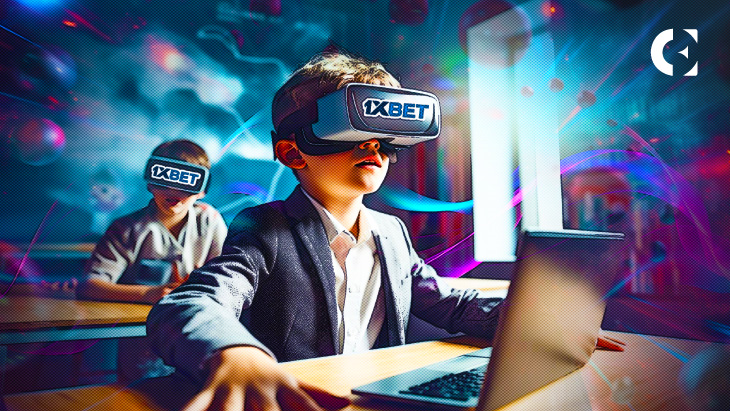eSports in Education: Integrating Competitive Gaming into Academic Programs
eSports has grown significantly in popularity over the past decade. Apart from being just a fun activity, it’s been making its way into schools and colleges. By including competitive gaming in their courses, educational institutions are opening new doors for learning. Think of platforms like the 1xbet page, which show how popular and important eSports has become.
eSports in Education

The Rise of eSports in Schools and Colleges
eSports, centered around competitive gaming, has become more than just a hobby. It’s evolved into a prominent global phenomenon, capturing the enthusiasm of millions of fans. Recognizing the widespread appeal among students, educational institutions are increasingly incorporating eSports into their programs. Schools and colleges are establishing gaming teams, offering scholarships for gaming, and utilizing video games as educational tools across various subjects.
Why Add eSports to Education?
a. Learning Benefits
1. Thinking and Strategy Skills: eSports demands strategic thinking and meticulous planning, mirroring the cognitive challenges encountered in real-life problem-solving scenarios.
2. Teamwork: Much like sports, eSports teaches students how to work together, instilling valuable lessons in teamwork, sharing ideas, and winning as a team.
3. Technology Skills: Gaming also vastly enhances proficiency in technology– an increasingly vital skill in today’s digital world.
b. Making School More Fun
When educational institutes include activities such as sports, video games, students potentially feel encouraged, empowered, and eager about learning. eSports can make classes more interesting and engaging.
c. Jobs and Careers
eSports potentially presents promising career opportunities, such as game designing, developing, animator, and marketing among several others.
Starting an eSports Program in Schools
a. Setting Up
To have an eSports program, schools need good computers, fast internet, and a place where students can practice and compete.
b. Making It Part of Learning
It’s important to mix gaming with regular school subjects. For example, you can learn about math, science, and art through video games. This makes learning more fun and relevant.
Challenges and Things to Think About
Integrating eSports into schools isn’t an easy feat. Educational institutes must ensure equitable access to technology, strike a balance to avoid excessive screen time, and emphasize that gaming contributes to learning, rather than serving as a recreational activity.
What the Future Holds
eSports in education is just starting. We might see schools working more with professional gaming groups, and teachers might come up with new ways to teach using games. The future of gaming in education is vast and offers an array of promising possibilities.
Integrating eSports with Traditional Education Methods
Blending eSports with regular school subjects requires careful planning. Teachers can use video games to explain complex ideas in simple ways. For example, a lengthy history lesson can make learning about the past more exciting and engaging with gaming. Similarly, games about building cities can help students understand engineering and urban planning.
a. Classroom Activities
1. Project-Based Learning: Students can work on projects where they create their own games, learning about coding, storytelling, and design.
2. Interactive Lessons: Teachers can use games to teach subjects like history or science, where students explore and learn by doing.
b. Developing Skills Beyond Gaming
Incorporating eSports into education transcends the realm of gaming. It cultivates essential skills such as leadership, communication, and time management—abilities that hold significance beyond the gaming sphere and are crucial in various facets of life.
Community and Inclusivity in eSports
Another great thing about eSports is its tendency to bring students together. It creates a community where everyone can join, regardless of physical abilities or background. Schools must ensure their eSports programs are welcoming to all students. This means having equipment that everyone can use and creating an environment where every student feels included.
Evaluating the Impact of eSports in Education
To ensure the effectiveness of eSports, schools should conduct regular assessments. This includes evaluating academic performance, measuring students’ level of engagement, and acquiring feedback from students. Through these measures, schools can continually enhance their eSports programs.
Balancing Gaming and Academic Responsibilities
It’s important to find the right balance between gaming and schoolwork. Students should learn to manage their time well, making sure they’re not spending too much time on gaming. Teachers and parents can help by setting guidelines and supporting students in managing their time effectively.
The Role of Parents and Guardians
Parents and guardians play a vital role in this new way of learning. They can help by understanding the benefits of eSports and supporting their children’s interests. This includes encouraging balanced gaming habits and being involved in their children’s eSports activities at school.
Conclusion
eSports in education is an exciting development that can make learning more engaging and possibly prepare students for a digital future. It’s not just about playing games; it’s about learning important skills, being part of a community, and preparing for a wide range of careers. As schools continue to embrace this new way of learning, they potentially create new opportunities for students to succeed both in and out of the classroom. The integration of eSports into education is a journey that requires ongoing effort, but its potential benefits make it a worthwhile endeavor.
Disclaimer: The information presented in this article is part of a sponsored/press release/paid content, intended solely for promotional purposes. Readers are advised to exercise caution and conduct their own research before taking any action related to the content on this page or the company. Coin Edition is not responsible for any losses or damages incurred as a result of or in connection with the utilization of content, products, or services mentioned.







